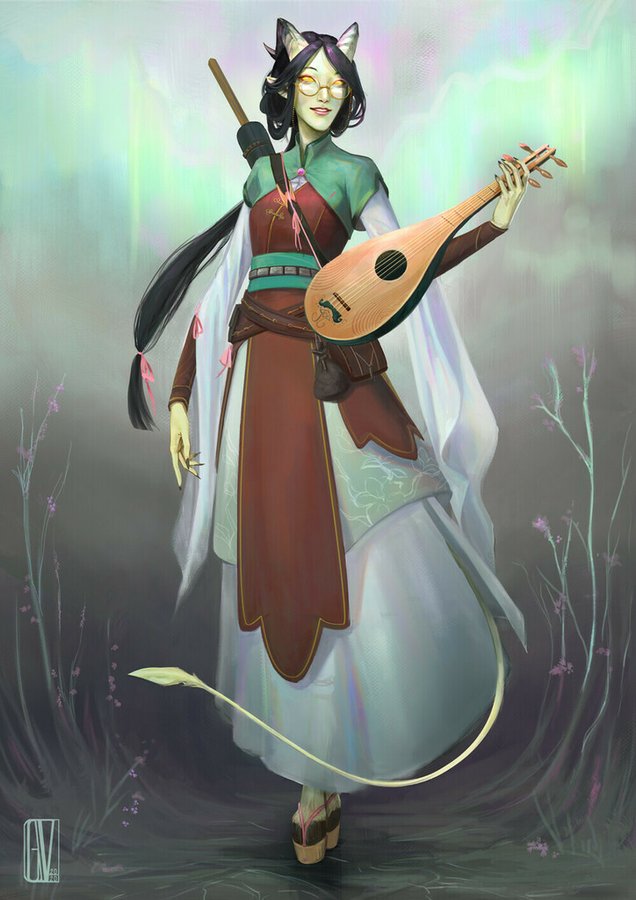



-
3Class Table
-
4Class Features
- 4Starting Stats and Equipment
- 4Bard Multiclassing
- 5Spellcasting, Bardic Inspiration, Jack of All Trades
- 5Song of Rest
- 6Bard College, Expertise, Ability Score Improvement
- 6Font of Inspiration, Countercharm, Expertise
- 6Magical Secrets, Superior Inspiration
-
7Bard Colleges
The way of a bard is gregarious. Bards seek each other out to swap songs and stories, boast of their accomplishments, and share their knowledge. Bards form loose associations, which they call colleges, to facilitate their gatherings and preserve their traditions.
Other Changes
This variant is intended to go along with the other changes, like class proficiency bonuses, detailed here.


The Bard
Humming as she traces her fingers over an ancient monument in a long-forgotten ruin, a half-elf in rugged leathers finds knowledge springing into her mind, conjured forth by the magic of her song—knowledge of the people who constructed the monument and the mythic saga it depicts.
A stern human warrior bangs his sword rhythmically against his scale mail, setting the tempo for his war chant and exhorting his companions to bravery and heroism. The magic of his song fortifies and emboldens them.
Laughing as she tunes her cittern, a gnome weaves her subtle magic over the assembled nobles, ensuring that her companions’ words will be well received.
Whether scholar, skald, or scoundrel, a bard weaves magic through words and music to inspire allies, demoralize foes, manipulate minds, create illusions, and even heal wounds.
The Bard
| Level | Proficiency Bonus | Features | Cantrips Known | Spells Known | 1st | 2nd | 3rd | 4th | 5th | 6th | 7th | 8th | 9th |
|---|---|---|---|---|---|---|---|---|---|---|---|---|---|
| 1st | +2 | Spellcasting, Bardic Inspiration (d6) | 2 | 4 | 2 | - | - | - | - | - | - | - | - |
| 2nd | +2 | Jack of All Trades, Song of Rest (d6) | 2 | 5 | 3 | - | - | - | - | - | - | - | - |
| 3rd | +2 | Bard College, Expertise | 2 | 6 | 4 | 2 | - | - | - | - | - | - | - |
| 4th | +2 | Ability Score Improvement | 3 | 7 | 4 | 3 | - | - | - | - | - | - | - |
| 5th | +3 | Bardic Inspiration, Song of Rest (d8), Font of Inspiration | 3 | 8 | 4 | 3 | 2 | - | - | - | - | - | - |
| 6th | +3 | Countercharm, Bard College Feature | 3 | 9 | 4 | 3 | 3 | - | - | - | - | - | - |
| 7th | +3 | — | 3 | 10 | 4 | 3 | 3 | 1 | - | - | - | - | - |
| 8th | +3 | Ability Score Improvement | 3 | 11 | 4 | 3 | 3 | 2 | - | - | - | - | - |
| 9th | +4 | — | 3 | 12 | 4 | 3 | 3 | 3 | 1 | - | - | - | - |
| 10th | +4 | Bardic Inspiration, Song of Rest (d10), Expertise, Magical Secrets | 4 | 14 | 4 | 3 | 3 | 3 | 2 | - | - | - | - |
| 11th | +4 | — | 4 | 15 | 4 | 3 | 3 | 3 | 2 | 1 | - | - | - |
| 12th | +4 | Ability Score Improvement | 4 | 15 | 4 | 3 | 3 | 3 | 2 | 1 | - | - | - |
| 13th | +5 | — | 4 | 16 | 4 | 3 | 3 | 3 | 2 | 1 | 1 | - | - |
| 14th | +5 | Magical Secrets, Bard College Feature | 4 | 18 | 4 | 3 | 3 | 3 | 2 | 1 | 1 | - | - |
| 15th | +5 | Bardic Inspiration, Song of Rest (d12) | 4 | 19 | 4 | 3 | 3 | 3 | 2 | 1 | 1 | 1 | - |
| 16th | +5 | Ability Score Improvement | 4 | 19 | 4 | 3 | 3 | 3 | 2 | 1 | 1 | 1 | - |
| 17th | +6 | — | 4 | 20 | 4 | 3 | 3 | 3 | 2 | 1 | 1 | 1 | 1 |
| 18th | +6 | Magical Secrets | 4 | 22 | 4 | 3 | 3 | 3 | 3 | 1 | 1 | 1 | 1 |
| 19th | +6 | Ability Score Improvement | 4 | 22 | 4 | 3 | 3 | 3 | 3 | 2 | 1 | 1 | 1 |
| 20th | +6 | Superior Inspiration | 4 | 22 | 4 | 3 | 3 | 3 | 3 | 2 | 2 | 1 | 1 |


Creating a Bard
Bards thrive on stories, whether those stories are true or not. Your character's background and motivations are not as important as the stories that he or she tells about them. Perhaps you had a secure and mundane childhood. There's no good story to be told about that, so you might paint yourself as an orphan raised by a hag in a dismal swamp. Or your childhood might be worthy of a story. Some bards acquire their magical music through extraordinary means, including the inspiration of fey or other supernatural creatures.
Did you serve an apprenticeship, studying under a master, following the more experienced bard until you were ready to strike out on your own? Or did you attend a college where you studied bardic lore and practiced your musical magic? Perhaps you were a young runaway or orphan, befriended by a wandering bard who became your mentor. Or you might have been a spoiled noble child tutored by a master. Perhaps you stumbled into the clutches of a hag, making a bargain for a musical gift in addition to your life and freedom, but at what cost?
Quick Build
You can make a bard quickly by following these suggestions. First, Charisma should be your highest ability score, followed by Dexterity. Second, choose the entertainer background. Third, choose the dancing lights and vicious mockery cantrips, along with the following 1st-level spells: charm person, detect magic, healing word, and thunderwave.
Class Features
As a bard, you gain the following class features.
Hit Points
- Hit Dice: 1d8 per bard level
- Hit Points at 1st Level: 8 + your Constitution modifier
- Hit Points at Higher Levels: 1d8 (or 5) + your Constitution modifier per bard level after 1st
Proficiencies
- Armor: Light armor
- Weapons: Simple weapons, hand crossbows, longswords, rapiers, shortswords
- Tools: Three musical instruments of your choice
- Saving Throws: Dexterity, Charisma
- Skills: Choose any three
Equipment
You start with the following equipment, in addition to the equipment granted by your background:
- (a) a rapier, (b) a longsword, or (c) any simple weapon
- (a) a diplomat’s pack or (b) an entertainer’s pack
- (a) a lute or (b) any other musical instrument
- Leather armor and a dagger
Alternatively, you can roll 4d4 x 10 gp and buy your starting equipment.
Bard Multiclassing
Bards follow all the normal rules for multiclassing. The following tables function as additions to the normal multiclassing rules.
Ability Score Minimum. As a multiclass character, you must have at least a Charisma score of 15 to take a level in this class, or to take a level in another class if you are already a bard.
Proficiencies Gained. If bard isn’t your initial class, here are the proficiencies you gain when you take your first level as a bard: Light armor, one skill of your choice, one musical instrument of your choice
Spell Slots. Add all your levels in the bard class to the appropriate levels from other classes to determine your available spell slots.
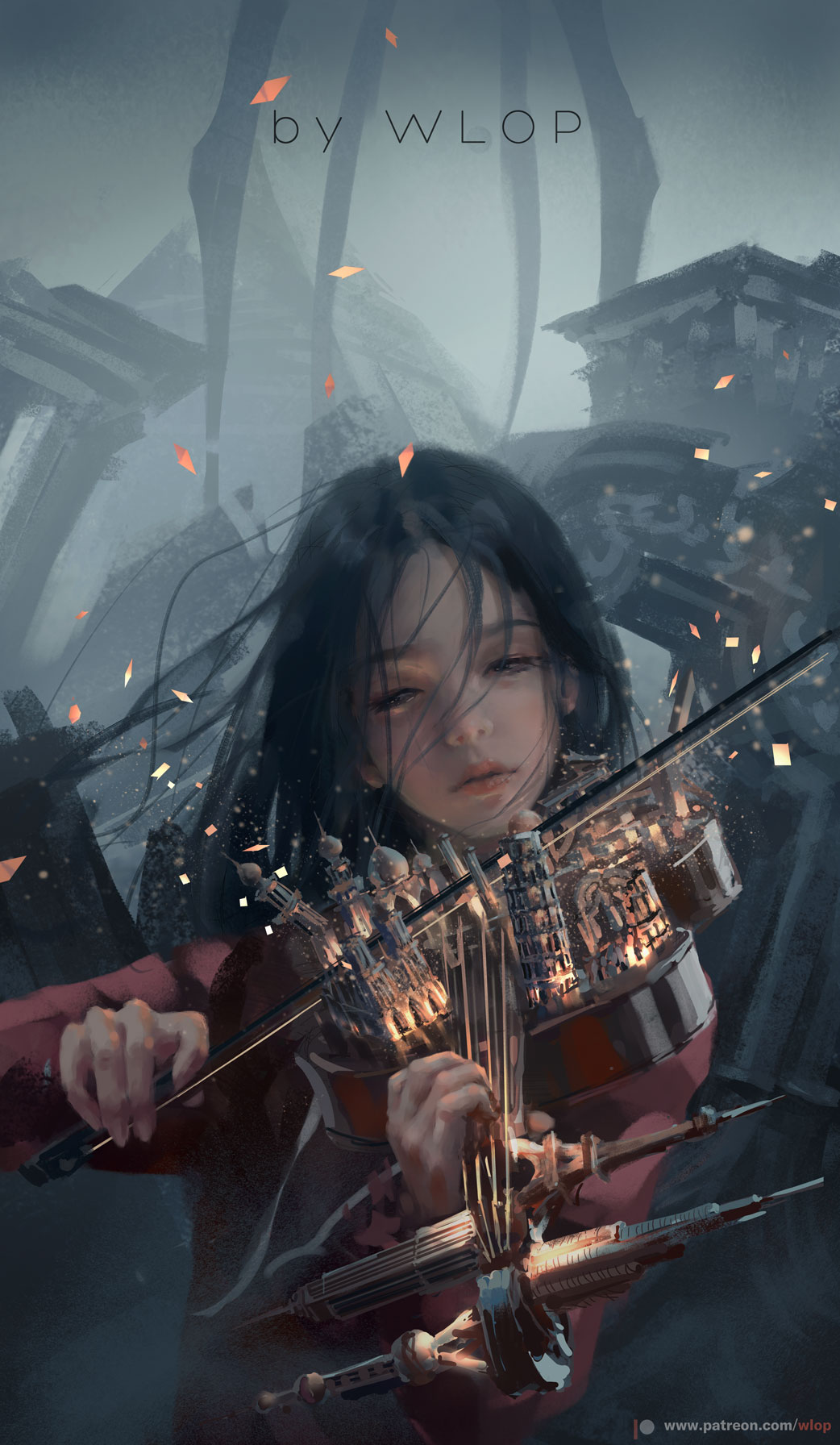

Spellcasting
You have learned to untangle and reshape the fabric of reality in harmony with your wishes and music. Your spells are part of your vast repertoire, magic that you can tune to different situations. See Spells Rules for the general rules of spellcasting and the Spells Listing for the bard spell list.
Cantrips
You know two cantrips of your choice from the bard spell list. You learn additional bard cantrips of your choice at higher levels, as shown in the Cantrips Known column of the Bard table.
Spell Slots
The Bard table shows how many spell slots you have to cast your bard spells of 1st level and higher. To cast one of these spells, you must expend a slot of the spell’s level or higher. You regain all expended spell slots when you finish a long rest.
For example, if you know the 1st-level spell Heal and have a 1st-level and a 2nd-level spell slot available, you can cast Heal using either slot.
Spells Known of 1st Level and Higher
You know four 1st-level spells of your choice from the bard spell list.
The Spells Known column of the Bard table shows when you learn more bard spells of your choice. Each of these spells must be of a level for which you have spell slots, as shown on the table. For instance, when you reach 3rd level in this class, you can learn one new spell of 1st or 2nd level.
Additionally, when you gain a level in this class, you can choose one of the bard spells you know and replace it with another spell from the bard spell list, which also must be of a level for which you have spell slots.
Spellcasting Ability
Charisma is your spellcasting ability for your bard spells. Your magic comes from the heart and soul you pour into the performance of your music or oration. You use your Charisma whenever a spell refers to your spellcasting ability. In addition, you use your Charisma modifier when setting the saving throw DC for a bard spell you cast and when making an attack roll with one.
Spell Save DC
Spell attack modifier
Ritual Casting
You can cast any bard spell you know as a ritual if that spell has the ritual tag.
Spellcasting Focus
You can use a musical instrument (see the Tools section) as a spellcasting focus for your bard spells.
Bardic Inspiration
You can inspire others through stirring words or music. To do so, you use a bonus action on your turn to choose one creature other than yourself within 60 feet of you who can hear you. That creature gains one Bardic Inspiration die, a d6.
Once within the next 10 minutes, the creature can roll the die and add the number rolled to one ability check, attack roll, or saving throw it makes. The creature can wait until after it rolls the d20 before deciding to use the Bardic Inspiration die, but must decide before the DM says whether the roll succeeds or fails. Once the Bardic Inspiration die is rolled, it is lost. A creature can have only one Bardic Inspiration die at a time.
You can use this feature a number of times equal to your Charisma modifier (a minimum of once). You regain any expended uses when you finish a long rest.
Your Bardic Inspiration die changes when you reach certain levels in this class. The die becomes a d8 at 5th level, a d10 at 10th level, and a d12 at 15th level.
Jack of All Trades
Starting at 2nd level, you can add half your proficiency bonus, rounded down, to any ability check you make that doesn’t already include your proficiency bonus.
Song of Rest
Beginning at 2nd level, you can use soothing music or oration to help revitalize your wounded allies during a short rest. If you or any friendly creatures who can hear your performance regain hit points at the end of the short rest by spending one or more Hit Dice, each of those creatures regains an extra 1d6 hit points.
The extra hit points increase when you reach certain levels in this class: to 1d8 at 5th level, to 1d10 at 10th level, and to 1d12 at 15th level.


Bard College
At 3rd level, you delve into the advanced techniques of a bard college of your choice detailed at the end of the class description or another from other sources. Your choice grants you features at 3rd level and again at 6th and 14th level.
Expertise
At 3rd level, choose two of your skill proficiencies. Your proficiency bonus is doubled for any ability check you make that uses either of the chosen proficiencies.
Ability Score Improvement
When you reach 4th level, and again at 8th, 12th, 16th, and 19th level, you can increase one ability score of your choice by 2, you can increase two ability scores of your choice by 1, or you can take a feat. As normal, you can’t increase an ability score above 20 using this feature.
Font of Inspiration
Beginning when you reach 5th level, you regain all of your expended uses of Bardic Inspiration when you finish a short or long rest.
Countercharm
At 6th level, your inspiration can disrupt mind-influencing effects. If a creature you can see within 60 feet is subject to an effect that requires a saving throw against an effect that causes the charmed or frightened condition, you may use your reaction to attempt to bolster that creature against the effect, providing advantage on the saving throw.
Expertise
At 10th level, choose two more of your skill proficiencies. Your proficiency bonus is doubled for any ability check you make that uses either of the chosen proficiencies.
Magical Secrets
By 10th level, you have plundered magical knowledge from a wide spectrum of disciplines. Choose two spells from any spell list. A spell you choose must be of a level you can cast, as shown on the Bard table, or a cantrip.
The chosen spells count as bard spells for you and are included in the number in the Spells Known column of the Bard table.
You learn two additional spells from these classes at 14th level and again at 18th level.
Superior Inspiration
At 20th level, when you roll initiative, regain one use of your bardic inspiration up to your maximum. When a creature uses a bardic inspiration die provided by you, they may roll the die twice and take the better result.
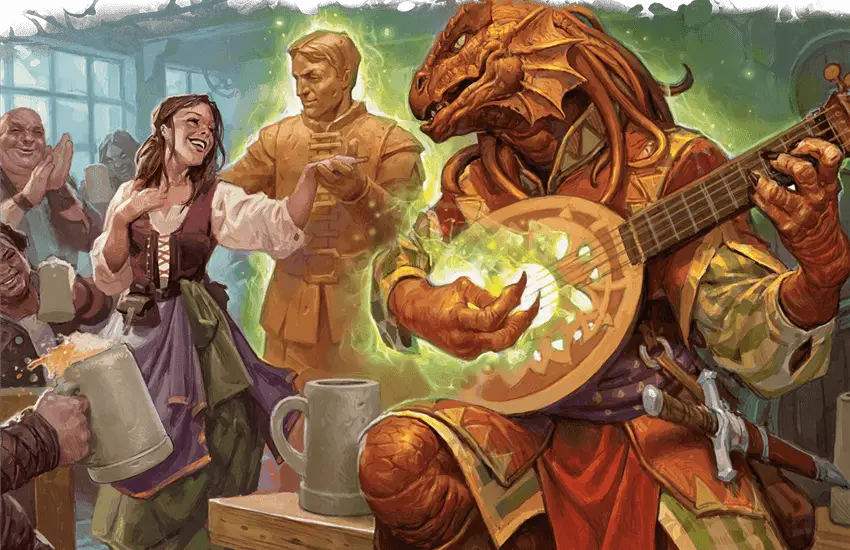

College of Creation
Bards believe the cosmos is a work of art - the creation
of the first dragons and gods. That creative work included harmonies that continue to resound through existence
today, a power known as the Song of Creation. The bards of the College of Creation draw on that primeval song through dance, music, and poetry, and their teachers share this lesson: "Before the sun and the moon, there was the Song, and its music awoke the first dawn. Its melodies so delighted the stones and trees that some of them gained a voice of their own. And now they sing too. Learn the Song, students, and you too can teach the mountains to sing and dance."
Dwarves and gnomes often encourage their bards to become students of the Song of Creation. And among dragonborn, the Song of Creation is revered, for legends portray Bahamut and Tiamat-the greatest of dragons -as two of the song's first singers.
Note of Potential
3rd-level Creation feature
Whenever you give a creature a Bardic Inspiration die, you can utter a note from the Song of Creation to create a Tiny mote of potential, which orbits within 5 feet of that creature. The mote is intangible and invulnerable, and it lasts until the Bardic Inspiration die is lost. The mote looks like a musical note, a star, a flower, or another symbol of art or life that you choose.
When the creature uses the Bardic Inspiration die, the mote provides an additional effect based on whether the die benefits an ability check, an attack roll, or a saving throw, as detailed below:
Ability Check. When the creature rolls the Bardic Inspiration die to add it to an ability check, the creature can roll the Bardic Inspiration die again and choose which roll to use, as the mote pops and emits colorful, harmless sparks for a moment.
Attack Roll. Immediately after the creature rolls the Bardic Inspiration die to add it to an attack roll against a target, the mote thunderously shatters. The target and each creature of your choice that you can see within 5 feet of it must succeed on a Constitution saving throw against your spell save DC or take thunder damage equal to the number rolled on the Bardic Inspiration die.
Saving Throw. Immediately after the creature rolls the Bardic Inspiration die and adds it to a saving throw, the mote vanishes with the sound of soft music, causing the creature to gain temporary hit points equal to the number rolled on the Bardic Inspiration die plus your Charisma modifier (minimum of 1 temporary hit point).
Performance of Creation
3rd-level Creation feature
As an action, you can channel the magic of the Song of Creation to create one nonmagical item of your choice in an unoccupied space within 10 feet of you. The item must appear on a surface or in a liquid that can support it. The gp value of the item can't be more than 20 times your bard level, and the item must be Medium or smaller. The item glimmers softly, and a creature can faintly hear music when touching it. The created item disappears after a number of hours equal to your bard proficiency bonus. For examples of items you can create, see the equipment chapter of the Player's Handbook.
The created item, regardless of composition, has an AC of 10 and hit points equal to three times your bard level.
Once you create an item with this feature, you can't do so again until you finish a long rest, unless you expend a spell slot of 2nd level or higher to use this feature again. You can have only one item created by this feature at a time; if you use this action and already have an item from this feature, the first one immediately vanishes.
The size of the item you can create with this feature increases by one size category when you reach 6th level (Large) and 14th level (Huge).


Animating Performance
6th-level Creation feature
As an action, you can target a Large or smaller nonmagical item you can see within 30 feet of you and animate it. The animate item uses the Dancing Item stat block, which uses your proficiency bonus (PB), The item is friendly to you and your companions and obeys your commands. It lives for 1 hour, until it is reduced to 0 hit points, or until you die.
In combat, the item shares your initiative count, but it takes its turn immediately after yours. It can move and use its reaction on its own, but the only action it takes on its turn is the Dodge action, unless you take a bonus action on your turn to command it to take another action. That action can be one in its stat block or some other action. If you are incapacitated, the item can take any action of its choice, not just Dodge.
When you use your Bardic Inspiration feature, you can command the item as part of the same bonus action you use for Bardic Inspiration.
Once you animate an item with this feature, you can't do so again until you finish a long rest, unless you expend a spell slot of 3rd level or higher to use this feature again. You can have only one item animated by this feature at a time; if you use this action and already have a dancing item from this feature, the first one immediately becomes inanimate.
Dancing Item
Large or smaller construct
- Armor Class 16
- Hit Points 10 + 5 times your bard level
- Speed 30 ft., fly 30 ft. (hover)
STR DEX CON INT WIS CHA 18 (+4) 14 (+2) 16 (+3) 4 (-3) 10 (+0) 6 (-2)
- Damage Immunities poison, psychic
- Condition Immunities charmed, exhaustion, poisoned, frightened
- Senses darkvision 60 ft., passive perception 10
- Languages understands the languages you speak
- Challenge -
- Proficiency Bonus (PB) equals your bonus
- Immutable Form. The item is immune to any spell or effect that would alter its form.
- Irrepressible Dance. When any creature starts its turn within 10 feet of the item, the item can increase or decrease (your choice) the walking speed of that creature by 10 feet until the end of the turn, provided the item isn't incapacitated.
Actions
Force-Empowered Slam. Melee Weapon Attack. your spell attack modifier to hit. reach 5 ft., one target you can see. 1d10+PB force damage.
Creative Crescendo
14th-level Creation feature
When you use your Performance of Creation feature, you can create more than one item at once. The number of items equals your Charisma modifier (minimum of two items). If you create an item that would exceed that number, you choose which of the previously created items disappears. Only one of these items can be of the maximum size you can create; the rest must be Small or Tiny.
You are no longer limited by gp value when creating items with Performance of Creation.


College of Eloquence
Adherents of the College of Eloquence master the art of oratory. Persuasion is regarded as a high art, and a well-reasoned, well-spoken argument often proves more powerful than objective truth. These bards wield a blend of logic and theatrical wordplay, winning over skeptics and detractors with logical arguments, and plucking at heartstrings to appeal to the emotions of entire audiences.
Silver Tongue
3rd-level Eloquence feature
You are a master at saying the right thing at the right time. When you make a Charisma (Persuasion) or Charisma (Deception) check, you can treat a d20 roll of 5 or lower as a 6.
Unsettling Words
3rd-level Eloquence feature
You can spin words laced with magic that unsettle a creature and cause it to doubt itself. As a bonus action, you can expend one use of your Bardic Inspiration and choose one creature you can see within 60 feet of you. Roll the Bardic Inspiration die. The creature must subtract the number rolled from the next saving throw it makes before the start of your next turn.
Unfailing Inspiration
6th-level Eloquence feature
Your inspiring words are so persuasive that others feel driven to succeed. When a creature adds one of your Bardic Inspiration dice to its ability check, attack roll, or saving throw and the roll fails, the creature can keep the Bardic Inspiration die.
Universal Speech
6th-level Eloquence feature
You have gained the ability to make your speech intelligible to any creature. As an action, choose one or more creatures within 60 feet of you, up to a number equal to your Charisma modifier (minimum of one creature). The chosen creatures can magically understand you, regardless of the language you speak, for 1 hour.
Once you use this feature, you can't use it again until you finish a long rest, unless you expend a spell slot to use it again.
Infectious Inspiration
14th-level Eloquence feature
When you successfully inspire someone, the power of your eloquence can now spread to someone else. When a creature within 60 feet of you adds one of your Bardic Inspiration dice to its ability check, attack roll, or saving throw and the roll succeeds, you can use your reaction to encourage a different creature (other than yourself) that can hear you within 60 feet of you, giving it a Bardic Inspiration die without expending any of your Bardic Inspiration uses.
You can use this reaction a number of times equal to your Charisma modifier (minimum of once), and you regain all expended uses when you finish a long rest.



College of Glamour
The College of Glamour is the home of bards who mastered their craft in the vibrant realm of the Feywild or under the tutelage of someone who dwelled there. Tutored by satyrs, eladrin, and other fey, these bards learn to use their magic to delight and captivate others.
The bards of this college are regarded with a mixture of awe and fear. Their performances are the stuff of legend. These bards are so eloquent that a speech or song that one of them performs can cause captors to release the bard unharmed and can lull a furious dragon into complacency. The same magic that allows them to quell beasts can also bend minds. Villainous bards of this college can leech off a community for weeks, abusing their magic to turn their hosts into thralls. Heroic bards of this college instead use this power to gladden the downtrodden and undermine oppressors.
Mantle of Inspiration
3rd-level Glamour feature
You gain the ability to weave a song of fey magic that imbues your allies with vigor and speed.
As a bonus action, you can grant yourself a wondrous appearance. When you do so, choose a number of creatures you can see and who can see you within 60 feet of you, up to a number equal to your Charisma modifier (minimum of one). Each of them gains 5 temporary hit points. These temporary hit points increase to 8 at 6th level, 11 at 10th level, and 14 at 14th level. When a creature gains these temporary hit points, it can immediately use its reaction to move up to its speed, without provoking opportunity attacks.
You can use this ability a number of times equal to your Charisma modifier, regaining all expended uses when you finish a long rest, unless you expend a Bardic Inspiration to use it again.
Enthralling Performance
3rd-level Glamour feature
You can charge your performance with seductive, fey magic. You gain proficiency in performance, or expertise if you already have proficiency.
If you perform for at least 1 minute, you can attempt to inspire wonder in your audience by singing, reciting a poem, or dancing. At the end of the performance, choose a number of humanoids within 60 feet of you who watched and listened to all of it, up to a number equal to your Charisma modifier (minimum of one). Each target must succeed on a Wisdom saving throw against your spell save DC or be charmed by you. While charmed in this way, the target idolizes you, it speaks glowingly of you to anyone who speaks to it, and it hinders anyone who opposes you, avoiding violence unless it was already inclined to fight on your behalf. This effect ends on a target after 1 hour, if it takes any damage, if you attack it, or if it witnesses you attacking or damaging any of its allies.
If a target succeeds on its saving throw, the target has no hint that you tried to charm it.
Once you use this feature, you can’t use it again until you finish a short or long rest.
Mantle of Majesty
6th-level Glamour feature
You gain the ability to cloak yourself in a fey magic that makes others want to serve you. As a bonus action, you can cast command, without expending a spell slot, and you take on an appearance of unearthly beauty for 1 minute or until your concentration ends (as if you were concentrating on a spell). During this time, you can cast command as a bonus action on each of your turns, without expending a spell slot.
Any creature charmed by you automatically fails its saving throw against the command you cast with this feature.
Once you use this feature, you can’t use it again until you finish a long rest.
Unbreakable Majesty
14th-level Glamour feature
Your appearance permanently gains an otherworldly aspect that makes you look more lovely and fierce.
In addition, as a bonus action, you can assume a magically majestic presence for 1 minute or until you are incapacitated. For the duration, whenever any creature tries to attack you for the first time on a turn, the attacker must make a Charisma saving throw against your spell save DC. On a failed save, it can't attack you on this turn, and it must choose a new target for its attack or the attack is wasted. On a successful save, it can attack you on this turn, but it has disadvantage on any saving throw it makes against your spells on your next turn.
Once you assume this majestic presence, you can't do so again until you finish a short or long rest.

College of Lore
Bards of the College of Lore know something about most things, collecting bits of knowledge from sources as diverse as scholarly tomes and peasant tales. Whether singing folk ballads in taverns or elaborate compositions in royal courts, these bards use their gifts to hold audiences spellbound. When the applause dies down, the audience members might find themselves questioning everything they held to be true, from their faith in the priesthood of the local temple to their loyalty to the king.
The loyalty of these bards lies in the pursuit of beauty and truth, not in fealty to a monarch or following the tenets of a deity. A noble who keeps such a bard as a herald or advisor knows that the bard would rather be honest than politic.
The college’s members gather in libraries and sometimes in actual colleges, complete with classrooms and dormitories, to share their lore with one another. They also meet at festivals or affairs of state, where they can expose corruption, unravel lies, and poke fun at self-important figures of authority.
Bonus Proficiencies
3rd-level Lore feature
You gain proficiency with three skills of your choice.
Cutting Words
3rd-level Lore feature
You learn how to use your wit to distract, confuse, and otherwise sap the confidence and competence of others. When a creature that you can see within 60 feet of you makes an attack roll, an ability check, or a damage roll, you can use your reaction to expend one of your uses of Bardic Inspiration, rolling a Bardic Inspiration die and subtracting the number rolled from the creature’s roll. You can choose to use this feature after the creature makes its roll, but before the DM determines whether the attack roll or ability check succeeds or fails, or before the creature deals its damage. The creature is immune if it can’t hear you or if it’s immune to being charmed.
Additional Magical Secrets
6th-level Lore feature
You learn two spells of your choice from any class. A spell you choose must be of a level you can cast, as shown on the Bard table, or a cantrip. The chosen spells count as bard spells for you but don’t count against the number of bard spells you know.
Peerless Skill
14th-level Lore feature
When you make an ability check, you can expend one use of Bardic Inspiration. Roll a Bardic Inspiration die and add the number rolled to your ability check. You can choose to do so after you roll the die for the ability check, but before the DM tells you whether you succeed or fail.
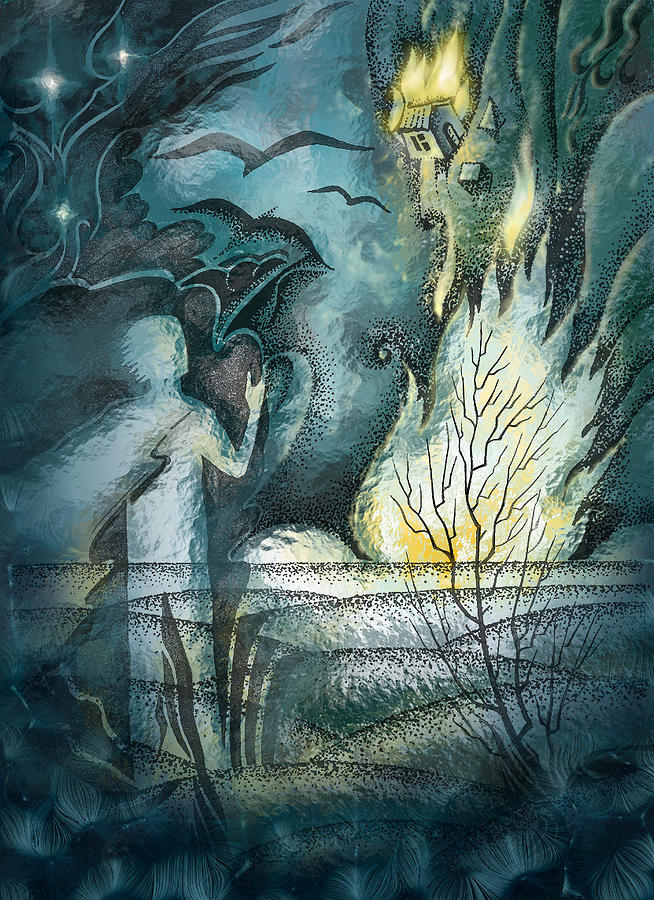

College of Nostalgia
Inspired CritMagnet's College of Nostalgia found here.
Bards of the College of Nostalgia utilizes the memories and feelings they evoke to empower their allies and hinder their foes. The emotions provoked by memory can be a tool to allow the mind to succeed where it would otherwise fail. A member of the College of Nostalgia can be a dangerous foe, trading weakness in the moment for ultimate success in the future.
Sentimental Score
3rd-level Nostalgia feature
You reminisce about the past and how things could have been, using that hindsight for your current predicaments. As a bonus action, you can expend a use of your Bardic Inspiration and grant yourself or a friendly creature a Sentiment.
If you or a creature has a Sentiment, they can expend it before they roll a d20. They can then roll the d20 with advantage. The creature can choose to take the lower roll, and if they do so, they keep the higher roll for future use. The creature can then replace an attack roll, saving throw, or ability check with that stored roll. The Sentiment lasts for 1 hour, or until it is used.
Wistful Memory
3rd-level Nostalgia feature
Your thoughts of the past leave you with a sense of yearning towards familiarity. When you make a History, Religion or Nature check, you can grant yourself advantage on the roll. You can use this feature once, and you regain the ability to use it after you finish a short or long rest.
Ensemble of the Earworm
6th-level Nostalgia feature
You concoct a catchy tune that throws off the concentration of your foes. As an action, you can target a number of creatures within 30 feet of you that can hear you equal to your Charisma modifier. Each creature will be pestered by an annoying tune, and must make a Wisdom saving throw against your spell save DC. On a failure, they make their next attack roll they make before the start of your next turn with disadvantage. Additionally, if the creature is currently concentrating on a spell or another effect that requires concentration and fails their saving throw against this effect, they lose concentration.
Leitmotif of Familiarity
14th-level Nostalgia feature
You become an avatar of nostalgia, causing creatures to reminisce with rose-tinted glasses. You learn the spell modify memory, and it doesn't count against your Spells Known. If you already know modify memory, you may learn another bard spell of your choice. As an action, you can cast the spell modify memory without expending a spell slot. Once you cast modify memory in this way, you can't do so again until you finish a long rest.
In addition, when you cast modify memory, you can choose to cast it at a higher level at a cost of your maximum health. To cast the spell at a higher level, your hit point maximum must be decreased by 2d12 per slot level higher than 5th. You cannot cast the spell at a level higher than you have spell slots, and you cannot cast the spell on the same creature again through this feature if the creature fails their saving throw. If you cast the spell at a higher level, your maximum health will return to normal when you finish a long rest.


College of Spirits
Bards of the College of Spirits seek tales with inherent power-be they legends, histories, or fictions-and bring their subjects to life. Using occult trappings, these bards conjure spiritual embodiments of powerful forces to change the world once more. Such spirits are capricious, though, and what a bard summons isn't always entirely under their control.
Guiding Whispers
3rd-level Spirits feature
You can reach out to spirits to guide you and others. You learn the guidance cantrip, which doesn’t count against the number of bard cantrips you know. For you, it has a range of 60 feet when you cast it.
Spiritual Focus
3rd-level Spirits feature
You employ tools that aid you in channeling spirits, be they historical figures or fictional archetypes. You can use the following objects as a spellcasting focus for your bard spells: a candle, crystal ball, skull, spirit board, or tarokka deck.
Tales from Beyond
3rd-level Spirits feature
You reach out to spirits who tell their tales through you. While you are holding your Spiritual Focus, you can use a bonus action to expend one use of your Bardic Inspiration and roll on the Spirit Tales table using your Bardic Inspiration die to determine the tale the spirits direct you to tell. You retain the tale in mind until you bestow the tale’s effect or you finish a short or long rest.
You can use an action to choose one creature you can see within 30 feet of you (this can be you) to be the target of the tale’s effect. Once you do so, you can’t bestow the tale’s effect again until you roll it again.
You can retain only one of these tales in mind at a time, and rolling on the Spirit Tales table immediately ends the effect of the previous tale.
If the tale requires a saving throw, the DC equals your spell save DC.
| d12 | Tale Told Through You |
|---|---|
| 1 | Tale of the Clever Animal. For the next 10 minutes, whenever the target makes an Intelligence, a Wisdom, or a Charisma check, the target can roll an extra die immediately after rolling the d20 and add the extra die's number to the check. The extra die is the same type as your Bardic Inspiration die. |
| 2 | Tale of the Renowned Duelist. You make a melee spell attack against the target. On a hit, the target takes force damage equal to two rolls of your Bardic Inspiration die + your Charisma modifier. |
| 3 | Tale of the Beloved Friends. The target and another creature of its choice it can see within 5 feet of it gains temporary hit points equal to a roll of your Bardic Inspiration die + your Charisma modifier |
| 4 | Tale of the Runaway. The target can immediately use its reaction to teleport up to 30 feet to an unoccupied space it can see. |
| 5 | Tale of the Avenger. For 1 minute, any creature that hits the target with a melee attack takes force damage equal to a roll of your Bardic Inspiration die. |
| 6 | Tale of the Traveler. The target gains temporary hit points equal to a roll of your Bardic Inspiration die + your bard level. While it has these temporary hit points, the target’s walking speed increases by 10 feet and it gains a +1 bonus to its AC. |
| 7 | Tale of the Beguiler. The target must succeed on a Wisdom saving throw or take psychic damage equal to two rolls of your Bardic Inspiration die, and the target is incapacitated until the end of its next turn. |
| 8 | Tale of the Phantom. The target becomes invisible until the end of its next turn or until it hits a creature with an attack. If it hits a creature with an attack during this invisibility, the creature it hits takes necrotic damage equal to a roll of your Bardic Inspiration die and is frightened of the target until the end of the frightened creature's next turn. |
| 9 | Tale of the Brute. Each creature of the target’s choice it can see within 30 feet of it must make a Strength saving throw. On a failed save, a creature takes thunder damage equal to three rolls of your Bardic Inspiration die and is knocked prone. A creature that succeeds on its saving throw takes half as much damage and isn’t knocked prone. |
| 10 | Tale of the Dragon. The target spews fire from the mouth in a 30-foot cone. Each creature in that area must make a Dexterity saving throw, taking fire damage equal to four rolls of your Bardic Inspiration die on a failed save, or half as much damage on a successful one. |
| 11 | Tale of the Angel. The target regains hit points equal to two rolls of your Bardic Inspiration die + your Charisma modifier, and you end one condition from the following list affecting the target: blinded, deafened, paralyzed, petrified, or poisoned. |
| 12 | Tale of the Mind-Bender. You envoke an incomprehensible fable from an otherworldly being. The target must succeed on an Intelligence saving throw or take psychic damage equal to three rolls of your Bardic Inspiration die and be stunned until the end of its next turn. |
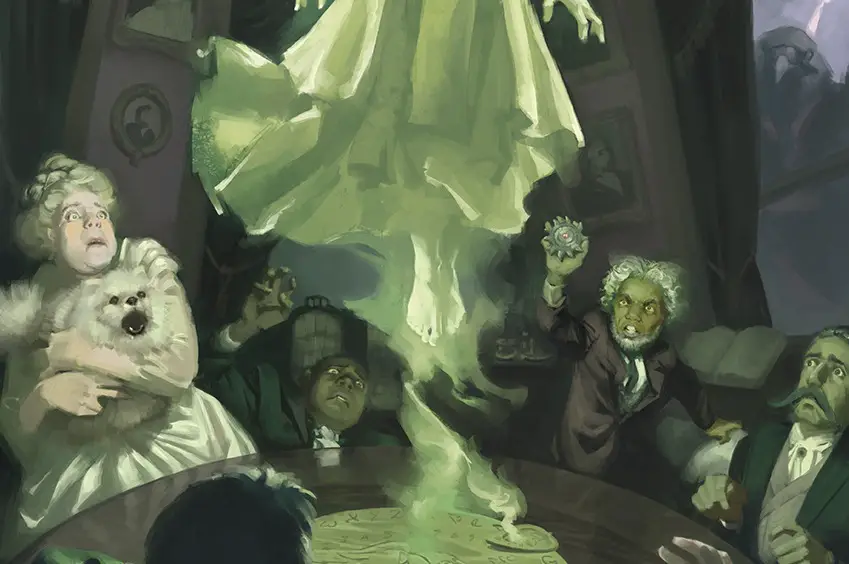


Enhanced Spiritual Focus
6th-level Spirits feature
When you cast a bard spell that deals damage or restores hit points through the Spiritual Focus, roll a d6, and you gain a bonus to one damage or healing roll of the spell equal to the number rolled.
Spirit Session
6th-level Spirits feature
Spirits provide you with supernatural insights. You can conduct an hour-long ritual channeling spirits (which can be done during a short or long rest) using your Spiritual Focus. You can conduct the ritual with a number of willing creatures equal to your bard proficiency bonus (including yourself). At the end of the ritual, you temporarily learn one spell of your choice from any class.
The spell you choose must be of a level equal to the number of creatures that conducted the ritual or less, the spell must of a level you can cast, and it must be in the school of Divination or Necromancy. The chosen spell counts as a bard spell for you but doesn’t count against the number of bard spells you know.
Once you perform the ritual, you can’t do so again until you start a long rest, and you know the chosen spell until.
Mystical Connection
14th-level Spirits feature
You now have the ability to nudge the spirits of Tales from Beyond toward certain tales. Whenever you roll on the Spirit Tales table, you can roll the die twice and choose which of the two effects to bestow. If you roll the same number on both dice, you can ignore the number and choose any effect on the table.


College of Swords
Bards of the College of Swords are called blades, and they entertain through daring feats of weapon prowess. Blades perform stunts such as sword swallowing, knife throwing and juggling, and mock combats. Though they use their weapons to entertain, they are also highly trained and skilled warriors in their own right.
Their talent with weapons inspires many blades to lead double lives. One blade might use a circus troupe as cover for nefarious deeds such as assassination, robbery, and blackmail. Other blades strike at the wicked, bringing justice to bear against the cruel and powerful. Most troupes are happy to accept a blade’s talent for the excitement it adds to a performance, but few entertainers fully trust a blade in their ranks.
Blades who abandon their lives as entertainers have often run into trouble that makes maintaining their secret activities impossible. A blade caught stealing or engaging in vigilante justice is too great a liability for most troupes. With their weapon skills and magic, these blades either take up work as enforcers for thieves’ guilds or strike out on their own as adventurers.
Bonus Proficiencies
3rd-level Swords feature
You gain proficiency with scimitars, longswords, and a martial weapon of your choice.
If you’re proficient with a simple or martial melee weapon, you can use it as a spellcasting focus for your bard spells.
Fighting Style
3rd-level Swords feature
You adopt a particular style of fighting as your specialty. Choose one of the following options. You can't take a Fighting Style option more than once, even if you later get to choose again.
- Dueling. When you are wielding a melee weapon in one hand and no other weapons, you gain a +2 bonus to damage rolls with that weapon, as well as a +2 bonus to Dexterity saving throws.
- Two-Weapon Fighting. When you engage in two-weapon fighting, you can add your ability modifier to the damage of any offhand attacks.
Blade Flourish
3rd-level Swords feature
You learn to conduct impressive displays of martial prowess and speed.
Whenever you take the Attack action on your turn, your walking speed increases by 10 feet until the end of the turn, and if a weapon attack that you make as part of this action hits a creature, you can use one of the following Blade Flourish options of your choice. You can use only one Blade Flourish option per turn.
Defensive Flourish. You can expend one use of your Bardic Inspiration to perform this flourish. You can cause your weapon to deal extra damage to the target you hit equal to the number you roll on the Bardic Inspiration die. You also add the number rolled to your AC until the start of your next turn. One creature of your choice within 60 feet of you gains a bonus to its next ability check, attack roll, or saving throw equal to a d4.
Slashing Flourish. You can expend one use of your Bardic Inspiration to perform this flourish. You cause your weapon to deal extra damage to the target you hit and to any other creature of your choice that are within your range equal to the number you roll on the Bardic Inspiration die. One creature of your choice within 60 feet of you gains a bonus to its next ability check, attack roll, or saving throw equal to a d4.
Mobile Flourish. You can expend one use of your Bardic Inspiration to perform this flourish. You can push the target up to 5 feet away from you, plus an extra number of feet equal to a roll of your Bardic Inspiration die, rounded up to the nearest multiple of 5. feet away from you and then you can immediately move up to your walking speed to an unoccupied space within 5 feet of the target. One creature of your choice within 60 feet of you gains a bonus to its next ability check, attack roll, or saving throw equal to a d4.
Extra Attack
6th-level Swords feature
You can attack twice, instead of once, whenever you take the Attack action on your turn.
Magical Flourish
14th-level Swords feature
You learn to weave spells into your martial displays.
Debilitating Flourish. You can expend one of your Bardic Inspiration to perform this flourish. You may make one weapon attack in the same action as you cast a spell with your action. Your weapon attack gains a bonus to hit equal to a roll of your Bardic Inspiration. If your weapon attack hits, then if the target makes a saving throw against the spell you cast before the start of your next turn, it suffers a the penalty to its saving throw equal to the same roll of your Bardic Inspiration.
Concentrated Flourish. You can expend one of your Bardic Inspiration to perform this flourish. You may make one weapon attack in the same action as you cast a spell with your action. Your weapon attack gains a bonus to hit equal to a roll of your Bardic Inspiration. You gain a bonus to your next Constitution saving throw you make to maintain concentration before the end of your next turn equal to the same roll of your Bardic Inspiration.

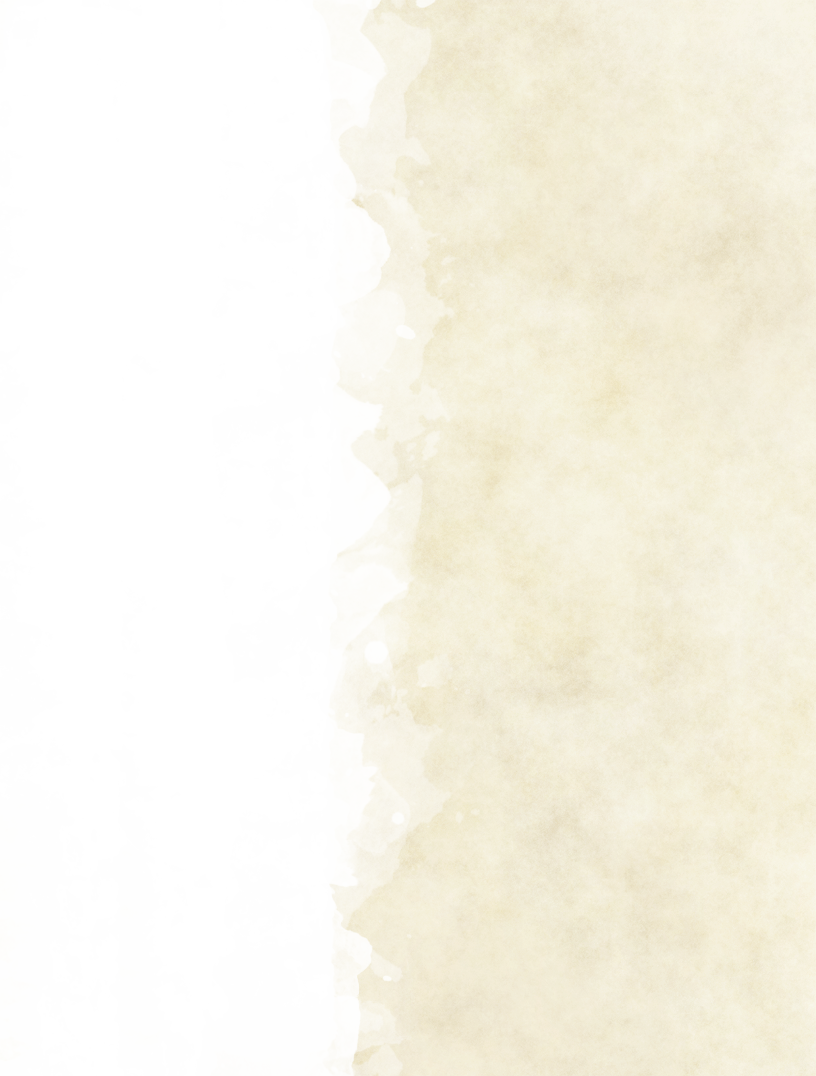
College of Valor
Bards of the College of Valor are daring skalds whose tales keep alive the memory of the great heroes of the past, and thereby inspire a new generation of heroes. These bards gather in mead halls or around great bonfires to sing the deeds of the mighty, both past and present. They travel the land to witness great events firsthand and to ensure that the memory of those events doesn’t pass from the world. With their songs, they inspire others to reach the same heights of accomplishment as the heroes of old.
Bonus Proficiencies
3rd-level Valor feature
You gain proficiency with all armor, shields, and martial weapons. You can use a weapon or a shield you are wielding as a spellcasting focus for your bard spells, and you can perform the somatic components of spells even when you have weapons or a shield in one or both hands.
College of Valor Spells
3rd-level Valor feature
Your study of combat allows you to learn spells that increase your combat ability. When your Spellcasting feature lets you learn or replace a bard spell of 1st level or higher, you can choose the new spell from the following spell list or the bard spell list. You must otherwise obey all the restrictions for selecting the spell, and it becomes a bard spell for you.
| Spell Level | Spells |
|---|---|
| 1st | hunter's mark, shield |
| 2nd | blur, magic weapon |
| 3rd | elemental weapon, haste |
| 4th | death ward, fire shield |
| 5th | banishing smite, swift quiver |
Combat Inspiration
3rd-level Valor feature
You learn to inspire others in battle. A creature that has a Bardic Inspiration die from you can roll that die and add the number rolled to a weapon attack or damage roll it just made. Alternatively, when an attack roll is made against the creature, it can use its reaction to roll the Bardic Inspiration die and add the number rolled to its AC against that attack, after seeing the roll but before knowing whether it hits or misses.
Battle Magic
6th-level Valor feature
You may attack twice, instead of once, whenever you take the attack action on your turn. Moreover, you can cast one of your cantrips with a casting time of 1 action in place of one of those attacks.
Improved Battle Magic
14th-level Valor feature
When you use your action to cast a bard spell, you may make a weapon attack as part of the same action.
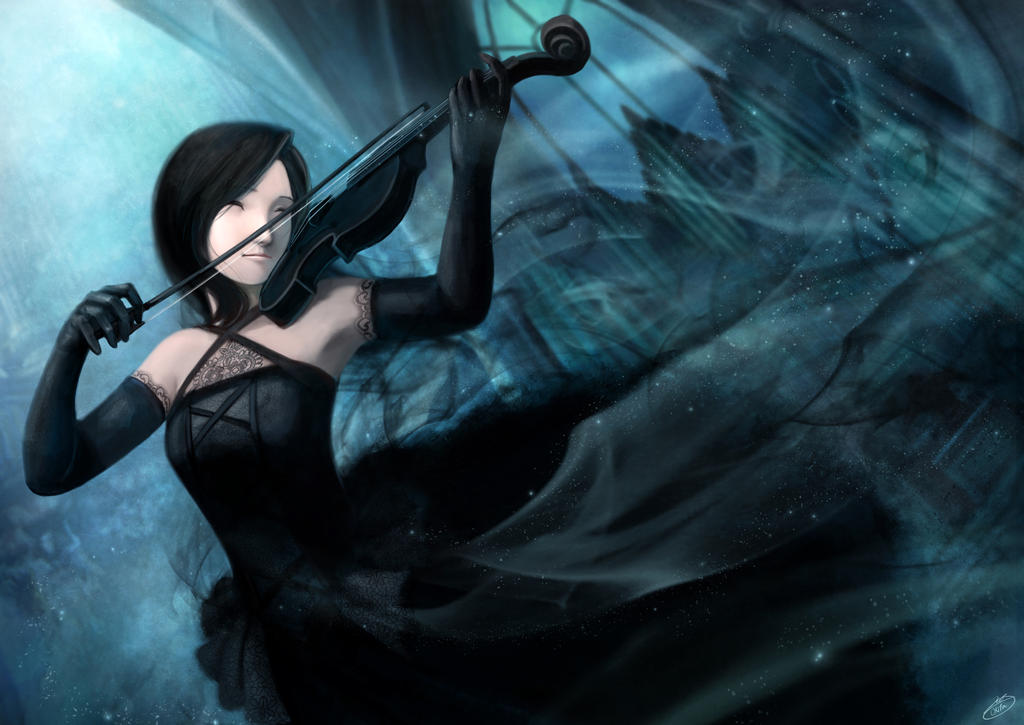

College of Whispers
Most folk are happy to welcome a bard into their midst. Bards of the College of Whispers use this to their advantage. They appear to be like any other bard, sharing news, singing songs, and telling tales to the audiences they gather. In truth, the College of Whispers teaches its students that they are wolves among sheep. These bards use their knowledge and magic to uncover secrets and turn them against others through extortion and threats.
Many other bards hate the College of Whispers, viewing it as a parasite that uses the bards’ reputation to acquire wealth and power. For this reason, these bards rarely reveal their true nature unless they must. They typically claim to follow some other college, or keep their true nature secret in order to better infiltrate and exploit royal courts and other settings of power.
Psychic Blades
3rd-level Whispers feature
Your weapon attacks and spells become infused with psychic toxicity. When you hit a creature with a weapon attack, or a creature fails a saving throw versus one of your spells, you can expend one use of your Bardic Inspiration to deal an additional 2d6 psychic damage to that target. You can do so only once per round on your turn.
The psychic damage increases when you reach certain levels in this class, increasing to 4d6 at 6th level, 6d6 at 10th level, and 8d6 at 14th level.
Words of Terror
3rd-level Whispers feature
You learn to infuse innocent-seeming words with an insidious magic that can inspire terror.
If you speak to a humanoid alone for at least 1 minute, you can attempt to seed paranoia and fear into its mind. At the end of the conversation, the target must succeed on a Wisdom saving throw against your spell save DC or be frightened of you or another creature of your choice. The target is frightened in this way for 1 hour, until it is attacked or damaged, or until it witnesses its allies being attacked or damaged.
If the target succeeds on its saving throw, the target has no hint that you tried to frighten it.
Once you use this feature, you can’t use it again until you finish a short or long rest.
Mantle of Whispers
6th-level Whispers feature
You gain the ability to adopt a humanoid's persona. When a humanoid dies within 30 feet of you, you can magically capture its shadow using your reaction.
You can use the shadow as an action. When you do so, it vanishes, magically transforming into a disguise that appears on you. You now look like the dead person, but healthy and alive. This disguise lasts for 1 hour or until you end it as a bonus action.
While you're in the disguise, you gain access to all information that the humanoid would freely share with a casual acquaintance. Such information includes general details on its background and personal life, but doesn't include secrets. The information is enough that you can pass yourself off as the person by drawing on its memories.
Another creature can see through this disguise by succeeding on a Wisdom (Insight) check contested by your Charisma (Deception) check. You gain a +5 bonus to your check.
You can have a number of shadows captured equal to your half your bard level at one time. If you capture a shadow that would put you above your limit of captured shadows, you must lose one shadow you have captured or lose the shadow you just captured.
Shadow Lore
14th-level Whispers feature
You gain the ability to weave dark magic into your words and tap into a creature’s deepest fears.
As an action, you magically whisper a phrase that only one creature of your choice within 30 feet of you can hear. The target must make a Wisdom saving throw against your spell save DC. It automatically succeeds if it doesn’t share a language with you or if it can’t hear you. On a successful saving throw, your whisper sounds like unintelligible mumbling and has no effect. You may expend a Bardic Inspiration to force the creature to make this save with disadvantage.
If the target fails its saving throw, it is charmed by you for the next 8 hours or until you or your allies attack or damage it. It interprets the whispers as a description of its most mortifying secret.
While you gain no knowledge of this secret, the target is convinced you know it. While charmed in this way, the creature obeys your commands for fear that you will reveal its secret. It will risk its life for you and fight for you. It grants you favors and gifts it would offer to a close friend.
When the effect ends, the creature has no understanding of why it held you in such fear.
Once you use this feature, you can’t use it again until you finish a long rest.



Bard Spell List
Notes:
This is the list of spells available to bards when they choose which spells they know. (UA) refers to unearthed arcana, and (HB) refers to homebrew spells. Spells with an asterisk indicate they have been modified. Spell changes are found here.
Cantrips (0 Level)
Blade Ward*
Dancing Lights*
Fool's GoldHB
Friends*
HoldingchainHB
Illusory FeintHB
Light*
Mage Hand*
Mending*
Message*
Mind Sliver
Minor Illusion*
Misfortune's MarkHB
PitifulnessHB
PocketswapHB
Prestidigitation*
Speak TrueHB
Stupefying StrikeHB
TagHB
Thunderclap*
True Strike*
Vicious Mockery*
1st Level
Animal Friendship
Bane
Charm Person*
Color Spray*
Command
Comprehend Languages
Detect Magic
Disguise Self
Dissonant Whispers
Distort Value
Earth Tremor
Faerie Fire*
Feather Fall
Heal*
Healing Word*
Heroism
Id Insinuation*
Identify*
Illusory Script*
Longstrider
MajoziHB
Power ChordHB
PuppetUA
Silent Image
Sleep
Speak with Animals
Sudden AwakeningUA
Tasha's Hideous Laughter
Thunderwave
Unseen Servant
2nd Level
Aid
Animal Messenger
Arcane RefocusHB
Aura of ShadeHB
Blindness/Deafness
BloomHB
Borrowed Knowledge*
Calm Emotions
Clinging ShadowsHB
Cloud of Daggers
Crown of Madness*
Detect Thoughts
Emboldening MarchHB
Enfeebling DirgeHB
Enhance Ability
Enlarge/Reduce
Enthrall*
Gift of Gab
Heat Metal*
Hold*
Horror StoryHB
Invisibility
Kinetic Jaunt
Knock
Restoration*
Locate Animals or Plants
Locate Object*
Magic Mouth*
Mental BarrierUA
Mirror Image
Nathair's Mischief
Phantasmal Force*
Pyrotechnics
See Invisibility
Silvery Barbs*
Shatter
Silence
Skywrite
Suggestion
Tasha's Mind Whip
Tick of the ClockHB
Thought Shield
Warding Wind
What's Mine is YoursHB
Zone of Truth*
3rd Level
- All That GlittersHB
- Banner of StarsHB
- Bestow BlessingHB
- Bestow Curse
- BirdsightHB
- Catnap*
- Clairvoyance
- CrescendoHB
- Curse of BladesHB
- Dispel Magic
- Enemies Abound
- Fast Friends
- Fear*
- Feign Death*
- Find VesselHB
- GlitterdustHB
- Glyph of Warding*
- Hastening MinuetHB
- Holy HymnalHB
- Hypnotic Pattern*
- Leomund's Tiny Hut*
- Major Image
- Misplace AggressionHB
- Motivational Speech
- Nondetection
- Plant Growth
- Pleonexia's Panoply of PersonasHB
- Rigur's Ice SkatesHB
- Seer of the WindowHB
- Sending
- Slow*
- Speak with Dead
- Speak with Plants
- Stinking Cloud*
- Summon Fey*
- Tale of CourageHB
- Thorns of a RoseHB
- Thunder PulseHB
- Tongues
4th Level
- Charm Monster
- Compulsion
- Confusion*
- Dimension Door
- Dominate*
- Echoing LanceHB
- Freedom of Movement
- Greater Invisibility
- Hallucinatory Terrain
- Iron MaidenHB
- It's Not Living If It's Not With YouHB
- Liquid GoldHB
- Locate Creature
- Long Way DownHB
- Phantasmal Killer*
- Polymorph
- Ring Around the RoseHB
- ShattersongHB
- War StoryHB
5th Level
- Animate Objects*
- Awaken
- Crescent BladeHB
- Dream*
- Geas*
- Legend Lore*
- Mass Heal*
- Matilda's Convenient CourierHB
- Mislead
- Modify Memory
- Planar Binding*
- Raise Dead*
- Rary's Telepathic Bond
- Scrying
- Seeming
- Skill Empowerment
- Sonic ShriekHB
- SuperheroismHB
- Synaptic Static*
- Tale of Hope & WoeHB
- Teleportation Circle
- Twist This FateHB
6th Level
Aura of SilenceHB
Creeping DarknessHB
Chant of ZakebHB
Death of the AuthorHB
Eyebite
Find the Path*
GhostwalkHB
Guards and Wards
Heroes' Feast*
Investiture of SoundHB
Mass Suggestion
Otto's Irresistable Dance*
Programmed Illusion
True Seeing
7th Level
Banner of LiberationHB
Etherealness
Flower MoonHB
Forcecage*
Mirage Arcane
Mob MentalityHB
Mordenkainen's Magnificent Mansion
Mordenkainen's Sword*
Prismatic Spray*
Project Image
Regenerate*
Resurrection*
Sensory DeprivationHB
Symbol*
Teleport
Wall of WonderHB
8th Level
Antipathy/Sympathy
Feeblemind*
Glibness
Mind Blank
Power Word Stun*
Sanctum of MagicHB
Tale of LegendHB
9th Level
Aurora OccidensHB
Foresight
Mass Polymorph
Power Word Heal*
Power Word Kill*
Prismatic Wall
Psychic Scream
True Polymorph
Art Credits
Art (Cover): Ekaterina Burmak: You can't wish for more wishes. (Link)
Art (Page 2): u/AleAboud: Jade, Bard - College of Life (Art for Tanares RPG) (Link)
Art (Page 3): Chase Stone: Yisan, the Wanderer Bard (Link)
Art (Page 4): Gabriel Angelo: Mara (Link)
Art (Page 5): wlop: Civilization2 (Link)
Art (Page 6): Rita Fei: Arcane Idol (Link)
Art (Page 7): Wizards of the Coast: college of creation bard (Link)
Art (Page 8): Rafael Carvalho: R31N Bot, warforged, college of creation bard. A commission I just finnished (Link)
Art (Page 9): Glenn Arthur: Opulent Anomalies (Link)
Art (Page 10): coffee-bard: d&d glamour bard (Link)
Art (Page 11): KuroCyou_Art: Portrait of Fley'Rani, tiefling bard of the college of lore! (Link)
Art (Page 12): Igor Khalandovskiy: Nostalgia (Link)
Art Credits Continued
Art (Page 13): Van Richten's Guide to Ravenloft: College of Spirits Bard (Link)
Art (Page 14): Van Richten's Guide to Ravenloft: College of Spirits Bard (Link)
Art (Page 15): Wesley Burt: D'Artagnan Evolved (Link)
Art (Page 16): Eric Belisle: Battle Herald (Link)
Art (Page 17): Luches: Danse Macabre (Link)
Art (Page 18): Ley Bowen 张: 插画-千年回响 (Link)
Page Stains: /u/flamableconcrete
